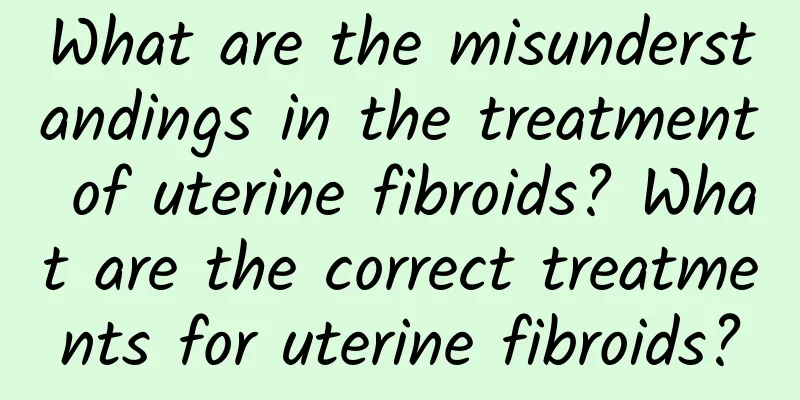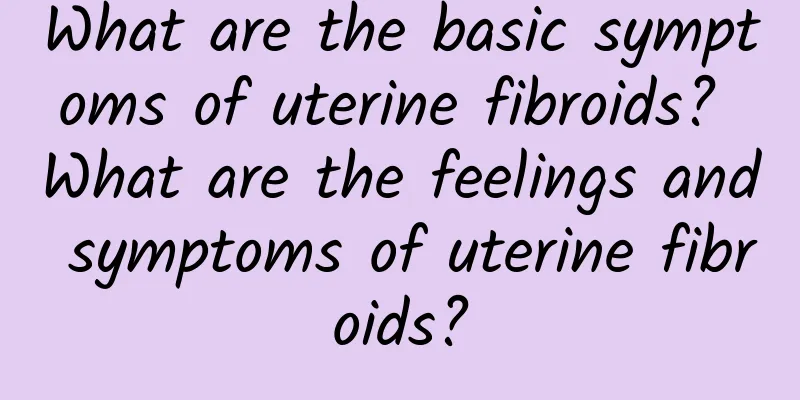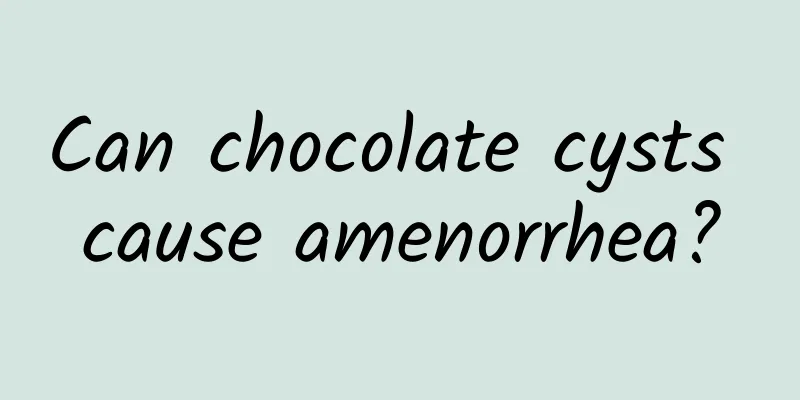What happens if you have an ovarian cyst?

|
Ovarian cysts are one of the common tumors of the female reproductive system. Their formation and development may be caused by a variety of factors, generally including abnormal hormone levels, genetic factors, lifestyle factors, inflammatory infection, endometriosis, etc. The specific analysis is as follows: 1. Abnormal hormone levels: An imbalance in the levels of estrogen, progesterone and other hormones in women, especially when ovulation is abnormal, can easily lead to the formation of ovarian cysts. For ovarian cysts caused by abnormal hormone levels, treatments may include oral contraceptives such as progesterone-estrogen combination tablets to adjust hormone levels, or use Chinese medicine to regulate the endocrine system. If the cyst is large or symptomatic, surgical removal may be required. 2. Genetic factors: Ovarian cysts are hereditary to a certain extent, and women with a family history of ovarian cysts have a higher risk of the disease. Ovarian cysts caused by genetic factors are difficult to prevent through direct treatment, but they can be detected and treated early through regular physical examinations such as B-ultrasound examinations. Once a cyst is found, conservative treatment or surgical treatment should be selected according to the specific situation. 3. Lifestyle factors: Bad living habits, such as staying up late for a long time, unbalanced diet, lack of exercise, etc., may affect the endocrine system and increase the risk of ovarian cysts. Improving lifestyle is an important measure to treat this type of ovarian cysts. Maintaining a regular schedule, a balanced diet, increasing the intake of vegetables and fruits, reducing the intake of high-fat and high-sugar foods, and doing appropriate physical exercise can all help prevent and improve ovarian cysts. 4. Inflammatory infection: Inflammatory infection of the pelvis or ovaries may stimulate ovarian tissue and lead to cyst formation. For ovarian cysts caused by inflammatory infection, anti-inflammatory treatment is required, usually antibiotics. If the cyst is large or accompanied by other symptoms, such as pain, fever, etc., surgical removal may be required. 5. Endometriosis: In endometriosis, endometrial tissue grows on the ovaries, forming cyst-like structures. The treatment of ovarian cysts caused by endometriosis is more complicated, and usually requires an individualized treatment plan based on the patient's age, fertility needs and severity of the disease. It may include drug therapy such as hormonal drugs, surgical treatment such as cystectomy, oophorectomy, etc., and assisted reproductive technology. There are many reasons for the formation of ovarian cysts, and the treatment methods also need to be determined according to the specific situation. Women should undergo regular gynecological examinations. Once an ovarian cyst is found, they should seek medical attention in time so that the doctor can develop an appropriate treatment plan based on the condition. At the same time, maintaining a good living habit and mentality is also important for preventing and improving ovarian cysts. |
<<: What are the symptoms of pelvic inflammatory disease?
>>: What causes cervical erosion?
Recommend
Why do uterine fibroids occur? 3 major reasons explained clearly
In today's society, uterine fibroids are no l...
A fitness meal that can be made once a week! Chicken breast with this flavor is more delicious, you can eat it by heating it in the microwave
Mini's secret to successfully losing weight i...
Understand the reasons why women may have irregular menstruation
It is common for women to have irregular menstrua...
What are the symptoms of pelvic peritonitis?
There are many patients with pelvic peritonitis, ...
What does recurrent miscarriage testing mean? Let's take a look
Recurrent miscarriage has a great impact on women...
Do you know how to treat ovarian cysts?
What are the treatments for ovarian cysts? Do you...
What meridians are good for uterine fibroids? Meridian massage can cure uterine fibroids
Meridian massage, as a traditional Chinese medici...
Is surgery necessary for uterine cysts? Are there no other treatments?
Uterine cysts do not necessarily require surgical...
A big female nutritionist lost 8 kg by fasting
Want to lose weight without losing breasts? It is...
What are the symptoms of vulvar leukoplakia?
What are the symptoms of vulvar leukoplakia ? Exp...
Is it normal to have large blood clots during menstrual bleeding?
Is it normal to have large blood clots during men...
Can patients with endometrial polyps prepare for pregnancy?
Can patients with endometrial polyps prepare for ...
Today I will tell you what to eat and what not to eat if you have uterine fibroids!
For the majority of female friends, correct and s...
Common methods of treating cervical warts
Speaking of cervical warts, I think everyone know...
There are too many parties in December! Sagittarius, eat these two foods to help lose weight~
There are so many festivals in December, includin...









